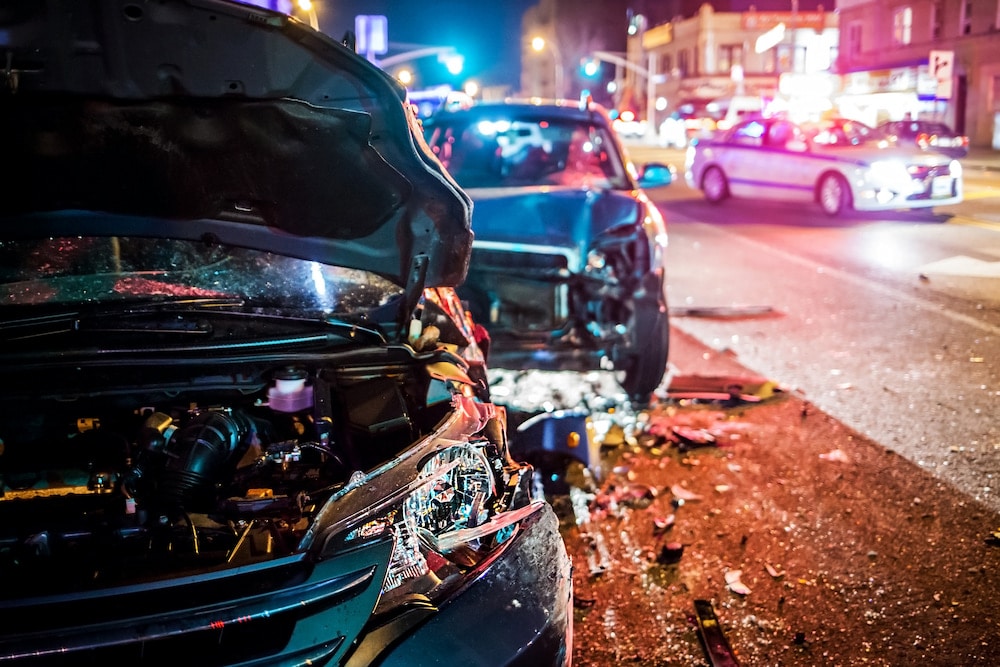New legislation to target dangerous driving and ‘hooning’ will be “a very strong deterrent” to offenders, ACT Deputy Chief Police Officer Peter Crozier said.
The ACT Government began reviewing its road transport penalties framework earlier this year; the first tranche of reforms was introduced to the Legislative Assembly today. Further reforms will follow next year.
“Across government, it’s very clear that we need to do more work to improve road safety in the ACT,” Attorney-General Shane Rattenbury said.
“We are seeking to address gaps that have been identified by ACT Policing which we believe can have a positive and clear impact in addressing some of the driver behaviour issues we have seen on our roads.”
Speeding and dangerous driving
Police will be able to immediately suspend drivers’ licences for speeding 45km/h over the posted speed limit, for refusing an oral fluid sample for drug testing, or for reckless or furious driving, Chris Steel, ACT Minister for Transport and City Services, said.
Alex Caruana, president of the Australian Federal Police Association, said this new power would go a long way towards protecting the community. Previously, officers could only issue traffic infringement notices and watch the motorist drive away.
Drivers repeatedly caught street racing could be imprisoned, for the first time, and be fined up to $16,000.
“The previous penalties for street racing were lenient, and didn’t reflect the seriousness of the offence,” Mr Caruana said. “The new legislation and penalties are more substantial and aligned with other jurisdictions and, most importantly, community expectations.”
Police can also seize vehicles for up to three months and impound them for three years.
These reforms, Mr Steel said, were a “very practical” measure to take dangerous drivers and their vehicles off the road.
Next year, the government intends to introduce legislation to sell or crush offenders’ vehicles.
Trespassing in motor vehicles
A new offence for trespassing in motor vehicles has been introduced, Mr Rattenbury said. Since 2019, Chief Police Officer Neil Gaughan said earlier this year, criminals must be seen or filmed driving a stolen vehicle; DNA on a steering wheel or gearstick was not sufficient to charge them with stealing a car.
“There was a gap in the law,” Mr Rattenbury said. “They could prove a person had been present in someone else’s car, but couldn’t prove they had stolen it. This offence recognises that unauthorised entry to a motor vehicle is unacceptable and wrong, and there needs to be a legal response.”
Next year, the ACT Government will introduce a more serious offence: unauthorised entry of a motor vehicle, carrying a higher penalty.
Fit to drive
Another law requires health practitioners to report to the road traffic authority whether somebody is fit to drive. ACT Chief Coroner Lorraine Walker had recommended the government introduce such a mandatory reporting scheme at the inquest into the death of Blake Corney, killed in July 2018 when a truck hit his parents’ car; the driver had a sleep disorder. This legislation specifically deals with that matter, Mr Steel said.
Displaying Nazi symbols will also be an offence, except when used in good faith, such as for education. Victoria and NSW have also prohibited Nazi symbols.
Dangerous driving is not acceptable
Mr Rattenbury said these reforms would create a framework of consequences and accountability to make it clear dangerous driving was not acceptable on Canberra roads.
“This is just the start of law reform in these areas,” Mr Rattenbury said. “We will be working to holistically tackle the range of complicated factors that have contributed to an unusually high death toll on our roads this year.”
Eighteen people have died on ACT roads so far this year, the highest road toll
Mr Crozier said the key issue was around people’s behaviour. He urged the public to speak to their family and friends about the outcomes of dangerous behaviour.
“We don’t want to be knocking on the door of our community members to pass the worst news to family and friends, so we urge you to speak to your young people, speak to those people whom we know are potentially thinking of undertaking criminal behaviour, and ensure they don’t do it.”
“Enough is enough,” Mick Gentleman, ACT Minister for Police and Emergency Services, told dangerous drivers.
“It’s not just the victims of your driving and their families who pay the price. First responders are being asked to bear the extraordinary burden supporting victims, witnesses, families, and colleagues.”
AFPA welcomes laws
Mr Caruana said the ACT Government, notably Mr Steel, had delivered on most of the issues the AFPA raised about dangerous driving.
The AFPA had long called for reform, and had presented evidence to the government’s dangerous driving inquiry.
Mr Caruana thanked Mr Steel and Mr Gentleman for taking affirmative and quick action and working collaboratively with the AFPA.



